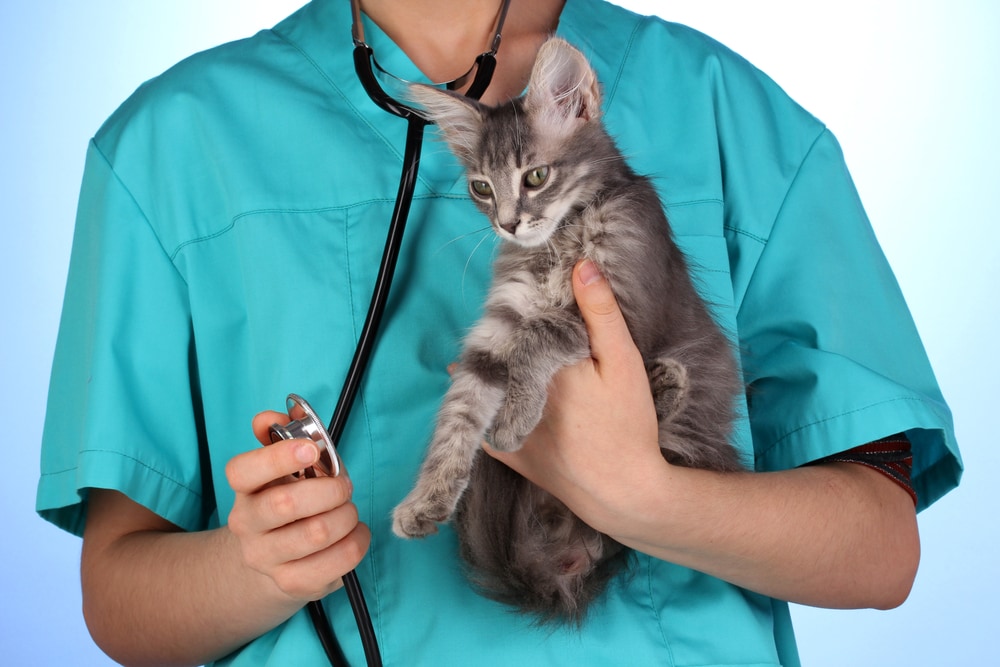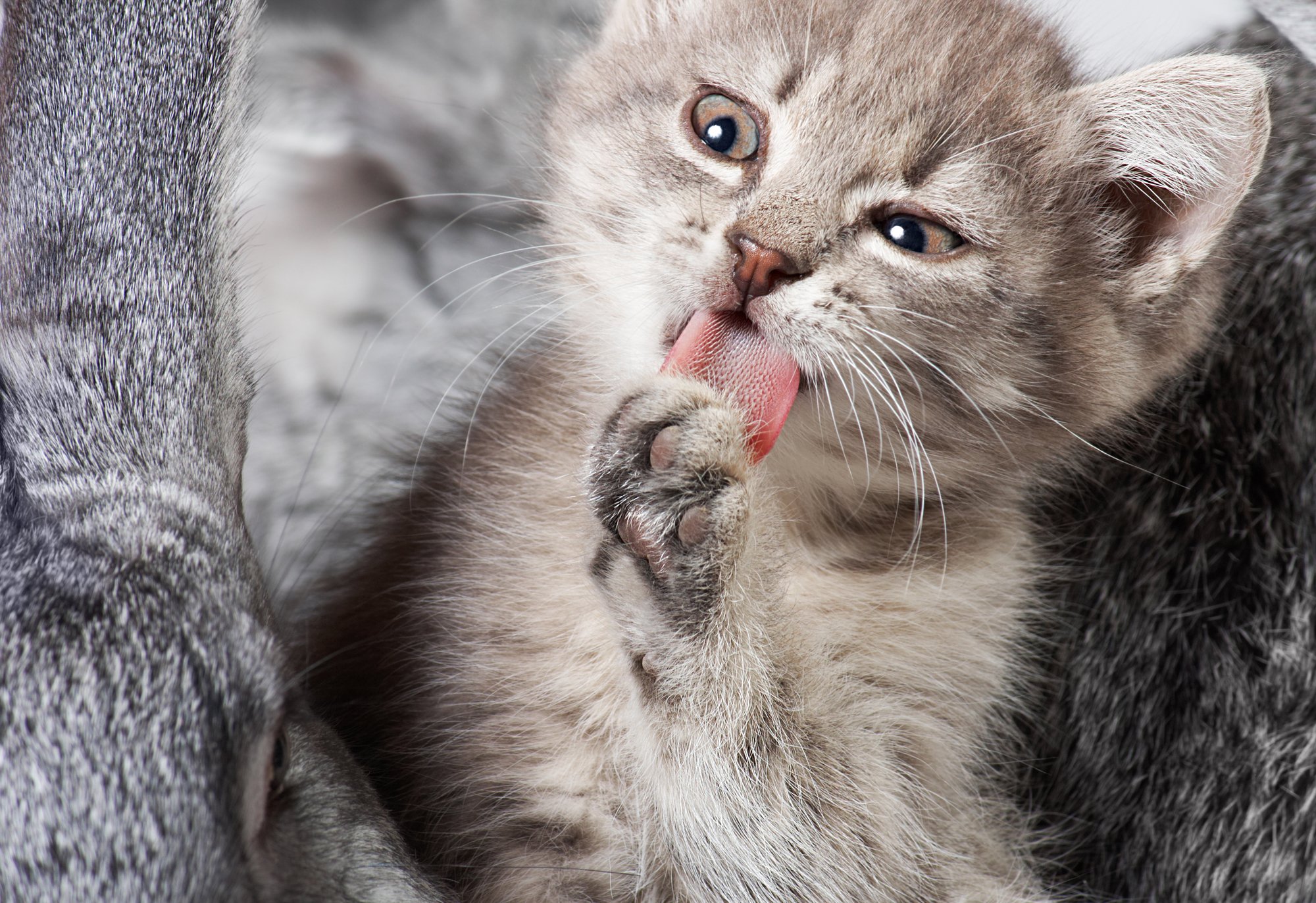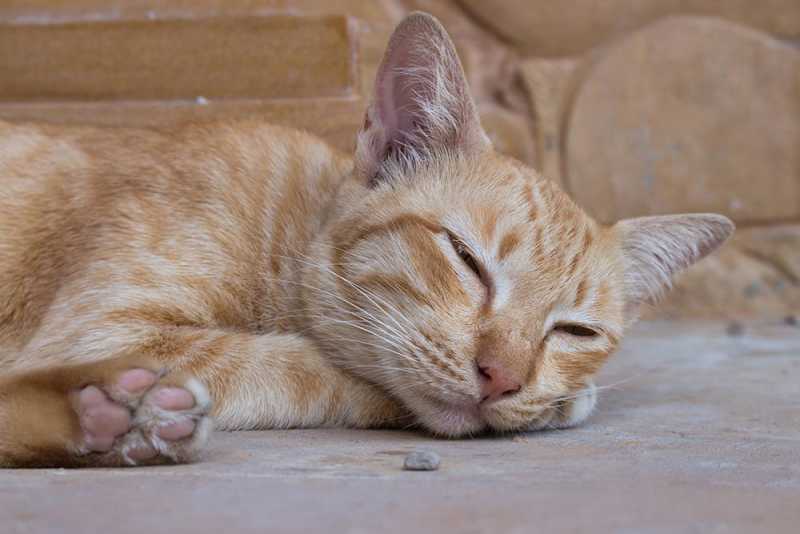crypto parasite in cats
In the temple the prevalence was 21 295 for dogs and 25 280 for cats. These are the first findings of C.
Cryptosporidium is a microscopic parasite that causes the diarrheal disease cryptosporidiosis.

. INTRODUCTION Cryptosporidium is an intestinal coccidian that has health dangers of pet ownership have increased consi- emerged as an important parasite in a number of host derably and while many potentially zoonotic organisms species worldwide. Felis is most common and is transmitted between cats by the ingestion of feces from mutual grooming shared litterboxes ingestion of contaminated food or water. The parasite is protected by an outer shell that allows it to survive outside the body for long periods of time and makes it.
Ellis explores the question should we be aggressively treating every case of cryptosporidiosis in a shelter setting. In the United States Cryptosporidium spp. Hepatology Vol28 No4 Oct 1998 pp.
Are intestinal coccidian parasites that are associated with disease in some infected hosts. Cryptosporidium is a protozoa that causes a condition known as cryptosporidium in cats. Most of the time the type of Crypto infection is very specific to the type of animal.
Coccidia And Coccidia Like Parasites There Are Many Important Species Of Coccidia That Effect Many Animals Especially Mammals And Birds The Most Common Genera Are Eimeria And. Although infections in any particular species tends to be by one species of cryptosporidium for example the main causative organism in humans and cattle is cryptosporidium parvum but they can be. These parasites represent a significant but often neglected threat to humans and animals.
Cats get infected with Cryptosporidium felis while dogs get C. DNA was amplified from 294 of cats with diarrhea. It can occur by itself or as a secondary infection in cats who have lowered immune function.
The resulting diseased condition cryptosporidiosis can typically be treated effectively with medications. Most of the time the type of Crypto infection is very specific to the type of animal. This bug is spread through infected feces which can contaminate water sources or the environment.
There are many species of Cryptosporidium that infect animals some of which also infect humans. Infecting cats are zoonotic. Parvum and Chominis 2 3 Fortunately most cats infected do not show symptoms of illness.
Risk factors include the ingestion of contaminated food or water the ingestion of animal feces and intestinal. The particular Cryptosporidia that are a threat to cats are classified as Cryptosporidium felis. The most common symptom of cryptosporidiosis is watery diarrhea other symptoms may include.
Cryptosporidia are nasty little protozoan parasites that affect not just cats but dogs rodents calves and humans as well. Canis and humans get C. According to the CDC Cryptosporidium is also one of the most frequent causes of waterborne disease among humans in the United States.
Histologically infection causes a blunting of the intestinal villus and crypt hyperplasia that is accompanied by an. Cryptosporidiosis in Cats Symptoms and Types. A fecal sample will be.
Cryptosporidium is considered a common contagious parasite in cats and other animals. In immunocompetent and healthy dogs and cats the infections are usually self-limiting. Cryptosporidium parvum is cytopathic for cultured human Gastrointestinal Parasites in Domestic Cats 427 biliary epithelia via an apoptotic mechanism.
Epub 2009 Apr 22. Parvum can infect a wide range of hosts and eventually cats. Severe diarrhea Stomach cramps and pain Nausea Vomiting Fever Dehydration Lethargy due to dehydration Loss of appetite Weight loss Possible rectal inflammation and bleeding due to diarrhea.
The cat is a reported reservoir for several zoonotic pathogens including Cryptosporidium spp Giardia duodenalis and Blastocystis sp. Surveys have shown that infection is quite common in dogs and cats. However clinical signs are usually mild and self-limiting.
The cat that presents with cryptosporidiosis will be having recurring bouts of diarrhea. Approximately 20 of the oocysts produced in the intestine. The disease caused by Cryptosporidium infection is a water-losing diarrhea caused by the development of the parasites within the epithelial cells of the mucosa.
Cats are the primary definitive host for C. In the United States Cryptosporidium spp. No Cryptosporidium was found in dog samples from cattle farms.
Both the parasite and the disease are commonly known as Crypto. Read on to learn more about the symptoms and treatment of this feline infection. To determine the prevalence of Cryptosporidium spp.
Cryptosporidium is a microscopic protozoon. Cryptosporidiosis in Cats Cryptosporidium is an intestinal parasite that is commonly ingested through contaminated water food or feces. Cryptosporidium felis Cryptosporidium parvum.
Anorexia loss of appetite Abdominal pain Low-grade fever Lethargy Dehydration due to diarrhea Weight loss. Felis is most common and is transmitted between cats by the ingestion of feces from mutual grooming shared litterboxes ingestion of contaminated food or water and possibly ingestion of infected prey species. Cryptosporidium is a common intestinal parasite that can infect a wide variety of animals including but not limited to dogs cats and even humans.
Meleagridis in domestic pigeons and Cryptosporidium avian genotype III in. And other zoonotic enteric parasites in a sample of domestic dogs and cats in the Niagara region Ontario 5 of 26 clinics invited by mail survey reported their parasitological findings over 24 months. These symptoms are as follows.
Cryptosporidium is a gastrointestinal parasite which can infest many animals across a broad spectrum from humans to birds via cattle sheep and domestic pets including reptiles. Canis in dogs and C. Cryptosporidium is characterized by diarrhea and gastroenteritis.
Meleagridis in pigeons Cryptosporidium avian genotype III in seagulls C. Persistent infections usually denote an underlying cause such as canine distemper. DNA was amplified from 294 of cats with diarrhea.
Diarrhea and dehydration are the primary clinical signs. These little buggers are very infectious and affect your cats gastrointestinal tract sometimes causing symptoms such as diarrhea. Most Cryptosporidium infections in dogs and cats are subclinical.
The most common symptoms of cryptosporidiosis are fever and diarrhea. Cryptosporidiosis is an often-seen parasite in cats in high stress settings. Polymerase chain reaction PCR is now routinely available and has helped make diagnosis easier.
Cats will also display. Cryptosporidium cats dogs Venda South Africa epidemiology. 906-913 1998 ISSN 1527-3350.

Intestinal Parasite Cryptosporidium In Cats Petmd

Tritrichomonas Foetus Infection In Cats International Cat Care

Protozoan Parasite Cryptosporidium Which Causes The Parasitic Infection Cryptosporidiosis Science Illustration 3d Illustration Illustration

Intestinal Parasite Cryptosporidium In Cats Petmd

Coccidia In Cats And Kittens What Is It Symptoms Treatments And More

Protozoal Intestinal Parasites Catwatch Newsletter

How Common Cat Parasite Gets Into Human Brain And Influences Human Behavior Parasite Human Behavior Human Brain

Everything You Need To Know About Coccidia In Cats Petcarerx

Intestinal Parasite Cryptosporidium In Cats Petmd

Pin On Funny Quotes And Animals

Toxoplasma Full Length Cdna Project T Gondii Vet Medicine Cat Health Care Pet Care

Coccidia In Cats Small Door Veterinary

Cryptosporidiosis In Cats Symptoms Causes Diagnosis Treatment Recovery Management Cost Cat Symptoms Cats Cats And Kittens
What Can I Catch From My Cat River Landings Animal Clinic In Bradenton Florida

Gastrointestinal Parasites Of Cats Types Of Worms Parasitic Worms Roundworm

Tapeworm Tabs For Dogs Cats Cat Medication Cat Symptoms Cats



/ginger-cat-relaxing-1142424184-4e02175d72634795b60258da0a521b5f.jpg)